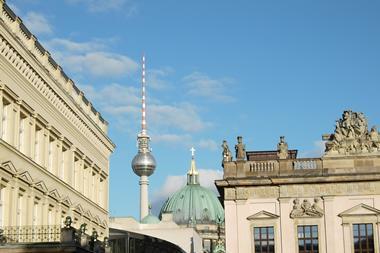Regulations, costs, and illiquidity are proving to be barriers for German institutions’ allocations to alternative asset classes, a survey has shown.
There was “no clear upwards trend” to more alternative asset classes among mandates issued by German institutions last year, according to a Spezialfonds survey by German rating company Telos.
For 17 years the group has been studying the demand for Spezialfonds, which are optimised for the reporting and investment needs of German institutional investors.
While diversification is “a clear trend” and institutions are seeking “more specialised mandates”, the researchers did not see a significant increase in demand for alternatives.
“There was only a limited number of investors with several funds, while around 80% of the surveyed institutions are not invested in alternatives at all,” the researchers said.
Overall, roughly a quarter of investors had an exposure to private equity, but less than 10% held hedge funds – similar to the numbers from previous years.
A third of portfolios contained infrastructure, compared to a quarter a year earlier. However, the average exposure to this asset class stood at 1.1%.
Those that did have exposure to alternatives increased their investments in these assets via Spezialfonds to 10% in 2016, compared to 4% the year before.
Over the next two years, more of the surveyed investors than in previous years said they wanted to increase their exposures to commodities and currencies – but only if they are allowed to do so.
German institutional investors fall under different legal frameworks, some of which are more restrictive than others when it comes to investing in alternatives, especially illiquid investments.
With this finding, the survey echoed a criticism on regulation by Andreas Hilka from the Hoechst Pensionskasse during a summit in Vienna last week.
The Telos researchers also looked at costs and fees for Spezialfonds. Their calculations showed that the fees for mandates differed greatly.
“Regrettably the question of costs is pushed very much into the focus in tenders nowadays,” they said.
Only 17% of respondents to the survey were “content” or “very content” with the cost levels of their managers. The vast majority (74%) said they were “neutral”, while only 8% said outright that they were “dissatisfied”.
The report stated that transparency on costs in Germany had increased as investors used tender platforms and consultants more frequently.
In total, around €1.48trn was managed for institutional investors in German Spezialfonds and a few institutional segments within mutual funds at the end of 2016, Telos noted.
This marked an increase of almost 10% in 12 months.
Given their size, insurers still account for the largest part of the assets in Spezialfonds, followed by pension funds and Versorgungswerke.
Looking back over the last decade, Telos calculated a 114% increase in institutional money managed by the German fund industry.








